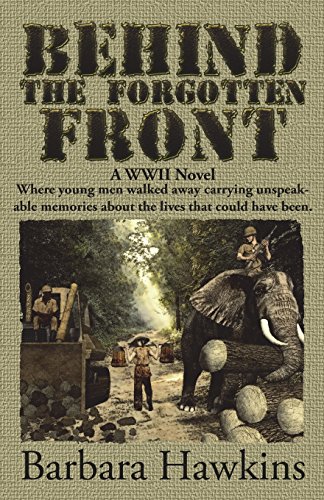Harry Flynn, an American, wants to join his friends and fight against Hitler during World War II, but he finds himself conscripted to an office job in India. The camp is a base for a road being built into Burma, but Harry is convinced that the road is a bad idea, unnecessarily costing the lives of the men working on it. Harry confiscates some dynamite and blows up portions of the road.
When he’s moved forward to the construction site, Harry slows down the building as much as he can, but his efforts are nothing compared with the massive challenges posed by nature: rains cause mudslides, washing out the road and vehicles alike, while mosquitoes and local diseases help fell the men working on the road. After Harry sets off explosives one day, he realizes that a small girl he saw in the area is no longer visible and wonders if he has accidentally killed her. He stops using explosives and instead uses a small amount of hydrochloric acid to wear away machinery and slow down the road construction that way.
Finally, Harry is transferred to a fighting unit. His small group slogs through the jungle, fighting the Japanese as well as the terrain, weather, hunger, and disease. Eventually, his small group makes its way to northern Burma, and they attempt to take the base called Myitkyina. Although at first they find little sign of the Japanese, gradually they realize there’s fierce resistance, and they remain fighting near Myitkyina for many months.
In a later attempt at Loi Kang to push uphill, Harry is wounded, though successful in his goal to take out the anti-aircraft bunkers near the top. After he recovers, he’s sent to Ceylon for a short time, but then the war is, finally, over. About to head home, he reflects that he’s not the same man who left the United States and his girl, Ruthie.
BEHIND THE FORGOTTEN FRONT is based on first-person reports of what the conflict was like, and it sounds like the brutal misery it likely was. However, Harry learns to value many of his fellow soldiers and is devastated by the loss of so many of them along the way. The book is well-written and powerful enough in its details to overcome, for the most part, the lack of editing that occasionally distracts the reader: for example, “I didn’t let my conscious wonder . . .” should be “I didn’t let my conscience wonder . . . ,” the American spelling of “gray” should be used instead of the British “grey,” and there are sometimes comma errors. Overall, though, it’s exactly what the description implies–a look at a part of the war too often ignored.
~Elizabeth Jewell for IndieReader

